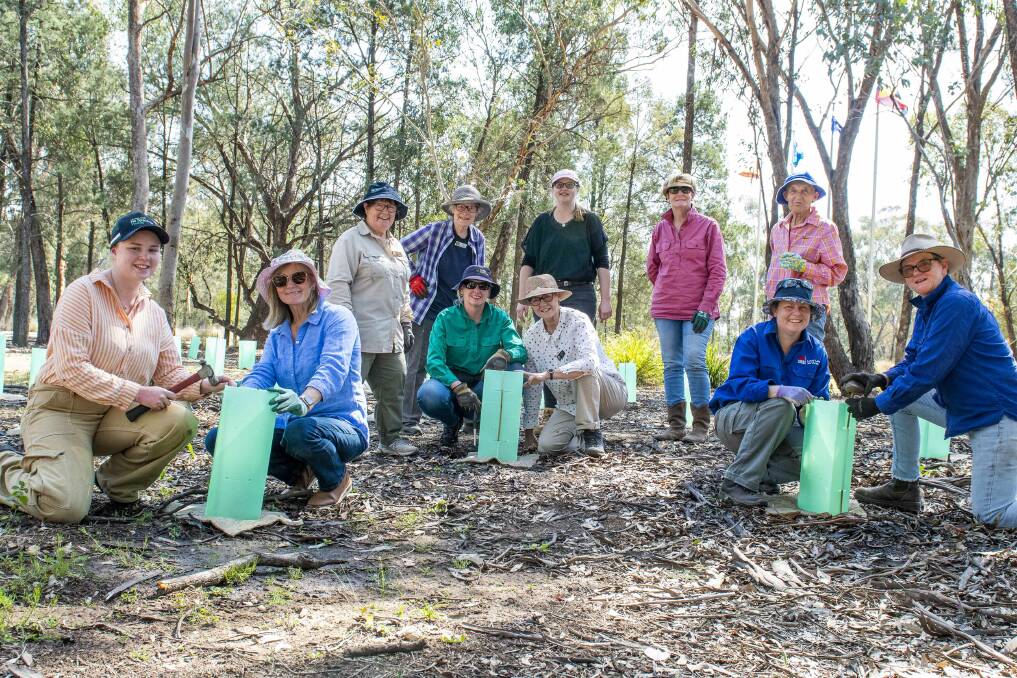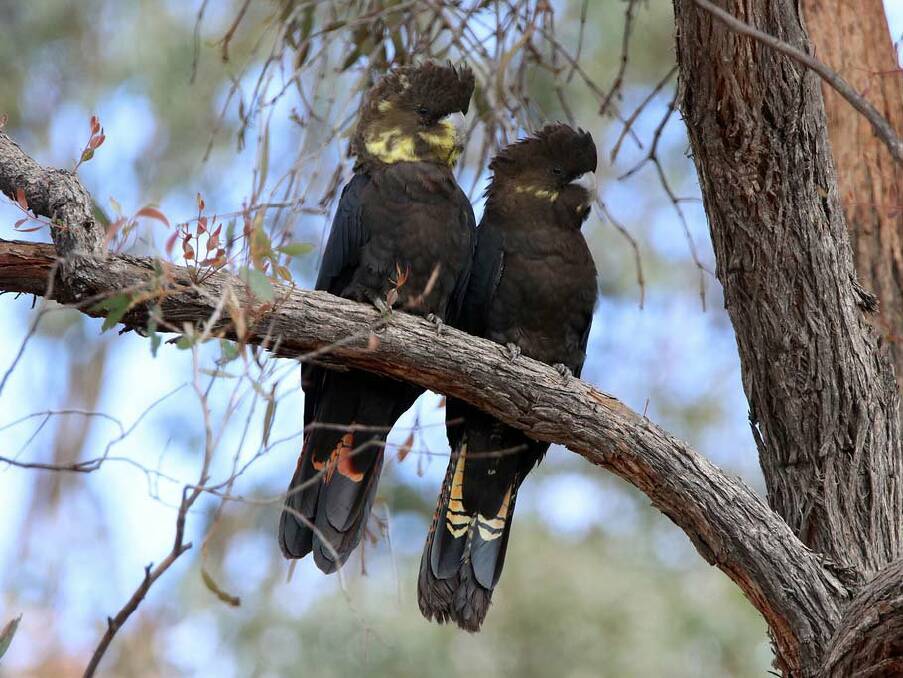Sheoaks may not be as visually striking as other Australian natives like banksias or bottle brushes but they serve a very important purpose.
Subscribe now for unlimited access.
$0/
(min cost $0)
or signup to continue reading
They're the primary food tree of one of Australia's rarest birds - the Glossy Black-Cockatoo.
"We do have a lot of feed trees available for the birds but as conditions worsen with climate change those trees are going to get overused," senior land services officer with Local Land Services, Katie McPherson, said.

Well known among bird lovers for their gentle nature, quirky behaviour and distinct colouration, the Glossy Black-Cockatoo has been declared a threatened species in recent years due to habitat destruction.
A major concern for the bird is clearing of allocasuarina - or sheoak - trees which they feed almost exclusively on the seeds of. Competition for nesting spaces with other birds and feral cats and possums raiding the birds' nests have also contributed to the decline.
But with the help of funding from the WIRES National Grants Program, the Central West Local Land Services is hoping to turn things around.

One of a number of initiatives, eager volunteers planted 150 allocasuarina saplings at the Taronga Western Plains Zoo in Dubbo on Wednesday to mark National Threatened Species Day.
"This environmental planting was more of an education and awareness raising day," Ms McPherson said.
"We planted some trees which are really public facing and we're going to have a sign put up with information about Glossy Black-Cockatoo and what you can do to help, including planting trees or installing nest boxes.
READ ALSO:
"We also planted some other trees in a more secluded area and hopefully the cockies will be more likely to use them away from all the people coming through."
National Threatened Species Day is held annually on September 7 and aims to raise awareness about native plants and animals at risk of extinction.
Over the last 200 years, more than 100 Australian animal and plant species have become extinct. In NSW alone, there are close to 1,000 animal and plant species at risk of extinction.
"The day is important for awareness raising about the importance of biodiversity and conservation, and a real awareness about what is happening around Australia with the loss of remnant vegetation and how important it is," said Ms McPherson.
Conservationists say landowners can help Glossy Black-Cockatoos by retaining sheoak and eucalypt trees where possible, not removing dead trees for firewood and not letting pets wander unsupervised at night.
"Thank you to WIRES National Grants Program, Habitat Innovation and Management, and Charles Sturt University who helped make the day possible," the Central West Local Land Services said.
"And of course big thanks to the amazing volunteers who gave up their time today to restore valuable feeding habitat corridors of this threatened species of cockatoo."
Reading this on mobile web? Download our news app. It's faster, easier to read and we'll send you alerts for breaking news as it happens. Download in the Apple Store or Google Play.
Sign-up to our latest newsletter:

